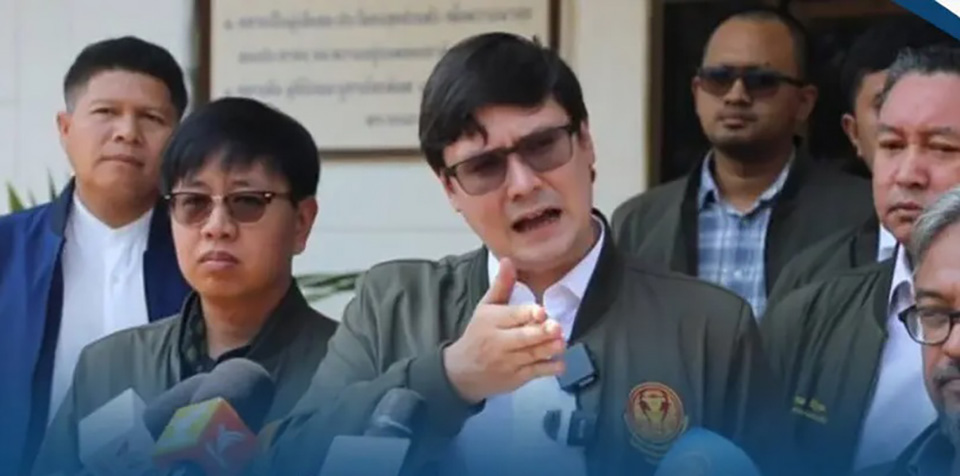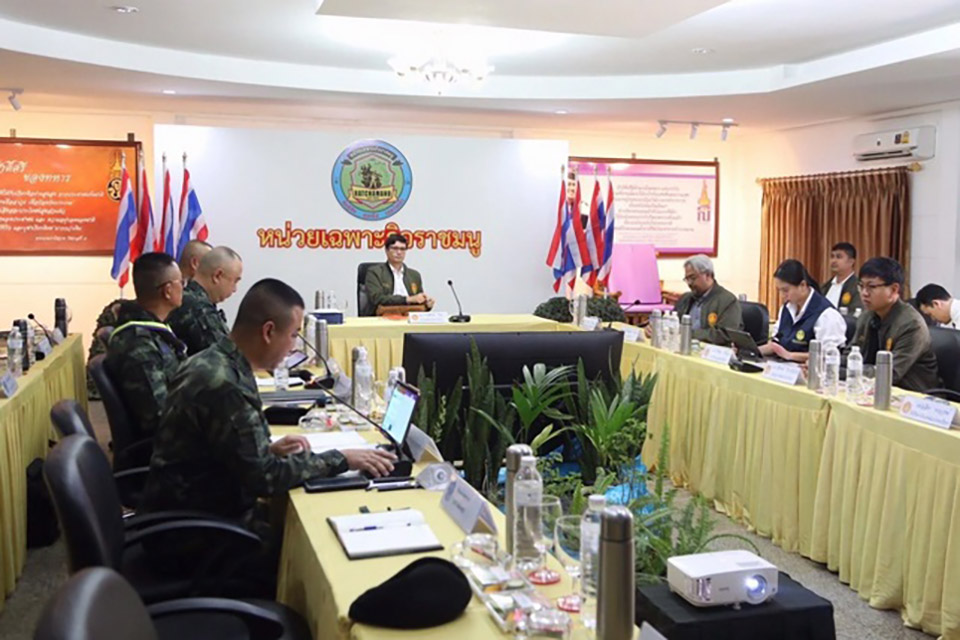
TAK, Thailand – Rangsiman Rome, Chairman of the House Committee on National Security, led a delegation to the Myanmar border, emphasizing that if authorities fail to issue an arrest warrant for “Maung Chit Tu,” someone must be held accountable. He urged a review of the visa-free policy and proposed a border permit system to prevent call center scams.
Rangsiman Rome, a party-list MP from the Commoner’s Party and chairman of the House Committee on National Security, Border Affairs, National Strategy, and Reform, visited Tak Province’s Mae Sot District. The delegation held discussions with local government and security agencies at the Rachamanu Task Force Headquarters to address crime and call center scam operations.
Following the meeting, Rangsiman stated that while suppression efforts are effective, long-term solutions require additional resources, including funding, technology, and personnel. He urged security agencies to draft detailed proposals for the committee’s review.
Rangsiman also met with Liu Zhongyi, Assistant Minister of Public Security from China, along with his delegation. He noted concerns about the influx of foreign nationals arriving in Mae Sot by air, despite Thailand’s four-layer screening system. He stressed that stricter measures, including a border permit system, may be necessary to prevent criminals from entering Thailand or attempting to cross the border. He also acknowledged ongoing smuggling activities, including the illicit fuel trade, occurring at night.
Regarding Maung Chit Tu, Rangsiman emphasized that he is a key figure controlling Myawaddy and the vast Shwe Kokko area, which may host up to 100,000 individuals linked to scam operations. Intelligence suggests criminals are retreating deeper into Myanmar, making cross-border collaboration insufficient. He called for broader enforcement measures to dismantle these networks.
When asked about the high percentage of individuals claiming to have voluntarily joined these operations, Rangsiman refrained from making conclusions. He highlighted screening challenges, including language barriers, diplomatic limitations, and the logistical difficulty of processing thousands of individuals. He stressed the need for improved screening efficiency to identify key perpetrators.
While China’s intelligence support is valuable, Rangsiman acknowledged that major criminal figures, such as global crime syndicate leader Wan Kok Koi and Maung Chit Tu, remain difficult to apprehend. He insisted that Thai authorities must take decisive action against these individuals, as well as others involved in scam operations.
“If prosecutors fail to cooperate with the DSI to issue arrest warrants, someone must be held accountable. We cannot allow criminals to violate Thai law, whether from within or outside the country. This is unacceptable, and responsibility must be taken,” Rangsiman declared. (TNA)











